Location
Our Seattle Location
Northpoint Seattle’s outpatient treatment program is located in beautiful Seattle, Washington, and we work to help the surrounding communities.
- Seattle
2111 N Northgate Way Suite 101,
Seattle, WA 98133, United States
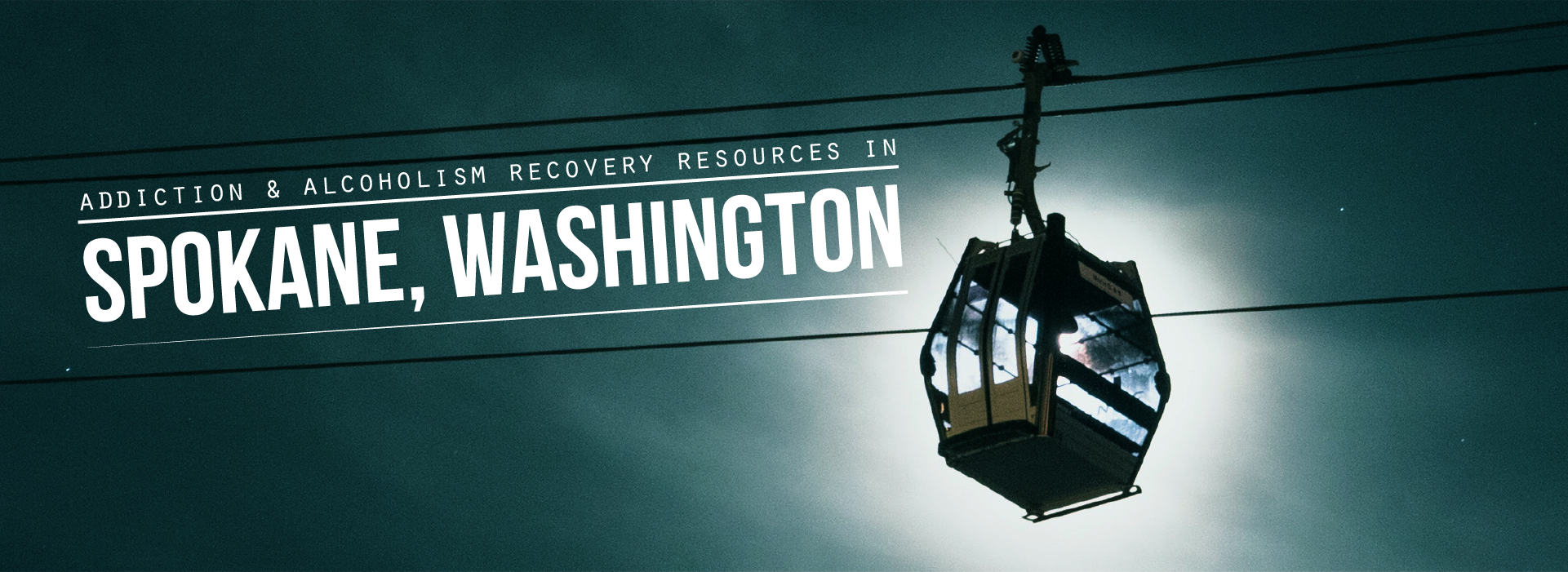
This same recovery is possible for you. If you’re struggling with alcoholism or addiction, there’s help and hope available for you all over. Here, we detail the resources available to alcoholics and addicts in and around Spokane, Washington.
There’s no shame in being addicted, but there is in not getting help once you’ve recognized that you have a problem. You have a responsibility to yourself to do everything in your power to recover and lead a fuller, better life. These addiction resources in Spokane can help.
Below, we talk more specifically about:
If you’re serious about getting clean and sober and reclaiming your life from drug addiction or alcoholism, you’ll have plenty of decisions to make along the road to recovery. One of the first decisions will be how formal of a recovery process you want to follow. If you want the most structure - which tends to prove the most successful course of action - you’ll need to choose between inpatient and outpatient treatment.
There are 20 different alcohol and drug rehab facilities in and around Spokane, leaving the recovering addict with many different options. The choice between alcohol and drug treatment facilities should be made based on personal preference towards what types of treatment are available, as well as the severity of the addiction or the substance you’re addicted to. How much money and time you can commit towards alcohol and drug rehab is also a consideration.
There are inpatient and outpatient clinics. The inpatient rehab is an excellent choice but you may not have the time to go into a residential setting for a month. If this is the case, you can choose an outpatient facility. This allows you to stay with your family and meet your obligations while getting excellent addiction recovery care.
Drug and alcohol rehab centers in Spokane include the Northpoint Seattle outpatient treatment facility. Just like an inpatient rehab program, we offer treatment programs that are designed for you. Our plans address addiction and what underlying reasons have caused it. We know this is an important part of long term sobriety.
Our intensive outpatient program has been designed around the essential points of what makes an inpatient rehab so effective. You still have the freedom and flexibility to live your life at the same time. This might be important for some. Realistically, not everyone can take a few weeks away from work and home. You won’t live in the drug rehab facility. Instead, you come into our facility for several hours daily. We offer group support, one-on-one counseling and skill building.
Our support includes:
If your heart is set on an inpatient facility because you know you need full time support, there is a Northpoint location near Seattle. Here, you’ll get constant care in a residential setting. The drug and alcohol drug rehab programs last a few weeks here. For a full spectrum recovery plan, you may choose to take inpatient rehab first and move onto our outpatient program. This has proven to be a successful method for those struggling with addiction.
In the vast majority of cases, the first step towards recovery is a professional detox program.
Drug detoxification is the process through which the body rids itself of the drug it’s addicted to. Drug detox programs in Spokane and elsewhere focus on doing this in a safe and controlled way to avoid the unpleasant and often dangerous symptoms of withdrawal.
Until your body has detoxed from drugs, your chances of recovery aren’t likely. Before entering an alcohol rehab or drug treatment program, you should have the substance out of your system completely. It will be too challenging to focus on the psychological reasons for your addiction when you’re still physically fighting withdrawal symptoms. Your body will continue to crave the drug, and you can experience many health problems related to withdrawal.
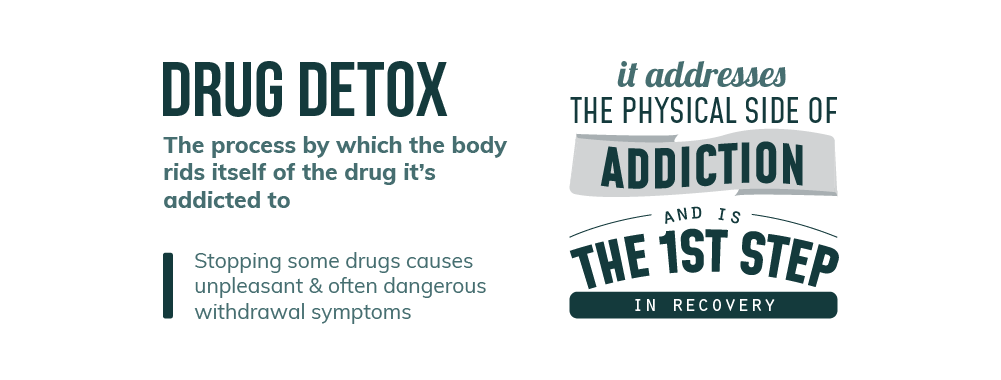
Often, people wonder if it’s possible to detox from drugs at home or on your own.
Sometimes people seek out what they believe is the “easy” way out of addiction. This leads them to try one day detox programs or even at home detoxification programs. If you do an online search you can find lots of information about topics like home remedies for opiate withdrawal. Drug detox kits and cleanses sound like they might be the answer to your problems.
However, you need to know that they carry risks. They’re also not usually effective at all.
As of right now, the FDA has not approved a single product for at-home detox purposes. These products may make grand promises, but none of them hold up. Even if they’re available at the pharmacy, you’re better off sticking with professional withdrawal treatments. These have been approved and proven to be effective, both in the short and in the long-term.
Your safest option - and that most likely to lead to a successful recovery - is a professional detox program.
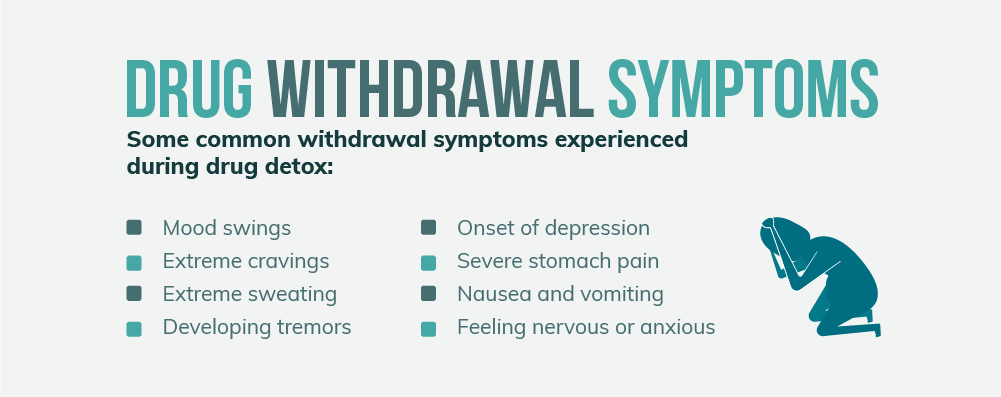
When you’re an alcoholic, your body becomes just as dependent on alcohol as a drug addict’s body does to drugs. Alcohol detox may be even more important than other substances because of alcohol’s influence on your brain chemistry. Quitting “cold turkey” on your own is not recommended. So to recover from alcoholism, you must also start by ridding your body of alcohol and teaching it how to function on its own - detox.
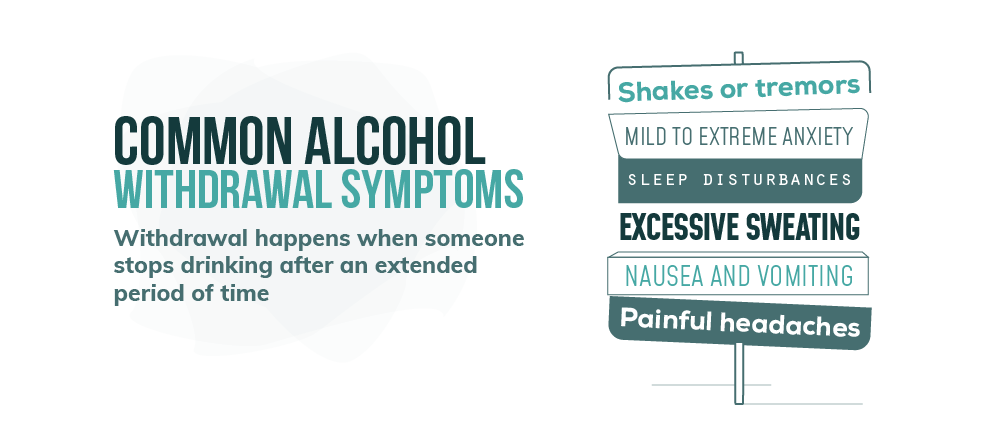
Without the help of a professional detox program, the symptoms of alcohol withdrawal are usually unpleasant, difficult to work through, and even dangerous.
An alcohol detox center is a place where you can get help for withdrawal. There are specific treatments that may be recommended for you, based on your needs. Your doctor and medical team will examine you to determine what you need when you’re admitted.
Detoxing is so important because it can help you avoid delirium tremens DTs (which we’ll discuss more later on). It will also make your recovery so much easier on you, both mentally and physically. You’ll be working with professionals who understand how to detox from alcohol. They are aware of the most up to date and effective methods to keep you safe during the process.
If you’re like many people, you may be tempted to attempt an alcohol detox at home. You may have seen ads for withdrawal vitamins or detox drinks that all claim to work. There are so many alcohol detox remedies that claim to be both natural and effective. The problem is that trying them out can be dangerous.
Even if you’ve gone through alcohol withdrawal before, you don’t know what to expect this time. A number of problems arise for those who try to detox from alcohol on their own. These include:
It would be so beneficial if there was an FDA approved way to detox from alcohol at home. However, no such remedy exists. It’s best to be safe and choose to detox in a professional facility.
Withdrawal symptoms from unassisted alcohol withdrawal can include:
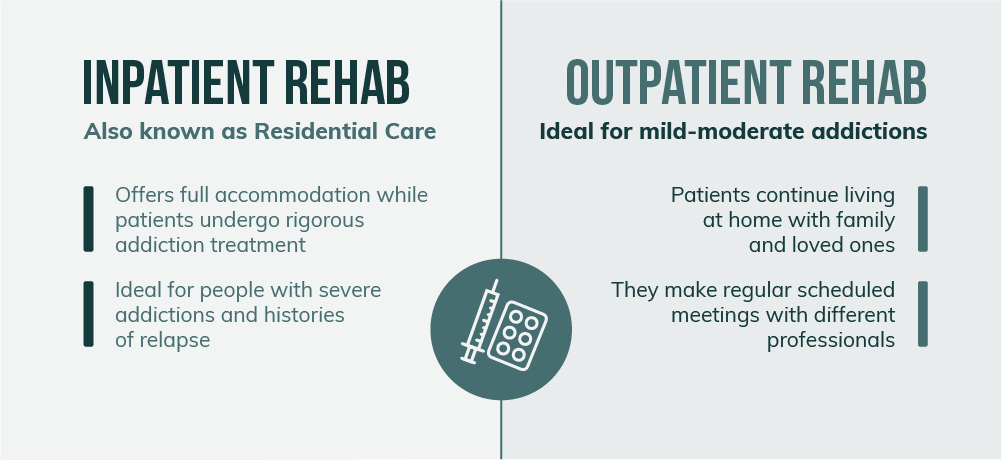
As we’ve mentioned, there are more than 20 addiction rehab facilities near Spokane, giving recovering drug addicts and alcoholics ample opportunity to find one that meets their needs. While detox deals with the body’s physical dependence on drugs or alcohol, rehab addresses the psychological dependence. Rehab programs work to break the thought processes that drive you to drink or do drugs. They accomplish this through therapy, group and individual activities, and other tried and true methods aimed at preventing a relapse once you leave the facility.
When most people think of drug or alcohol rehab, they think of inpatient alcohol and drug treatment. Inpatient rehab is when a recovering addict spends some time living in a facility in which they receive treatment for their addiction. There, they receive constant care by trained professionals to avoid falling back on alcohol or their drug of choice once they return to their normal lives.
Perhaps because of the 24/7 care and supervision, inpatient addiction treatment has the highest success rate of all treatment and recovery options. This means that those who complete inpatient drug and alcohol rehab programs are least likely to relapse to their addiction.
Despite this, inpatient treatment isn’t for everyone. It’s important to know and think through the pros and cons of inpatient rehab before deciding if it’s right for you or if you should seek other options.
The benefits of inpatient treatment are:
The detriments of inpatient addiction treatment include:
There are several inpatient facilities near Spokane, any many more elsewhere. Some people choose to attend rehab far away from where they live for reasons related to privacy and motivation.
The other alcohol and drug rehab option available to addicts is outpatient treatment. Outpatient addiction treatment involves regular scheduled meetings with different professionals - therapists, doctors, psychologists, etc. - while a recovering addict still lives independently.
Many people have a very successful recovery when taking part in outpatient treatment and enjoy the independence that comes with it. Just like inpatient treatment, outpatient treatment is not for everyone. It’s important to think through the pros and cons to know if it’s truly the right choice for you.
The benefits of outpatient treatment include:
The potential downsides to outpatient treatment can be:
There are many outpatient treatment facilities near Spokane, and educating yourself on the various types of therapy is invaluable in choosing what’s best for you. Any type of outpatient alcohol and drug treatment works best if paired with a strong positive support system of friends and family and a commitment to true wellness.
With so many options for drug and alcohol rehab in Spokane, how does someone choose which to attend? There are many signs of a good rehab program, and many decisions that a recovering addict or alcoholic must make personally to determine what’s best for them.
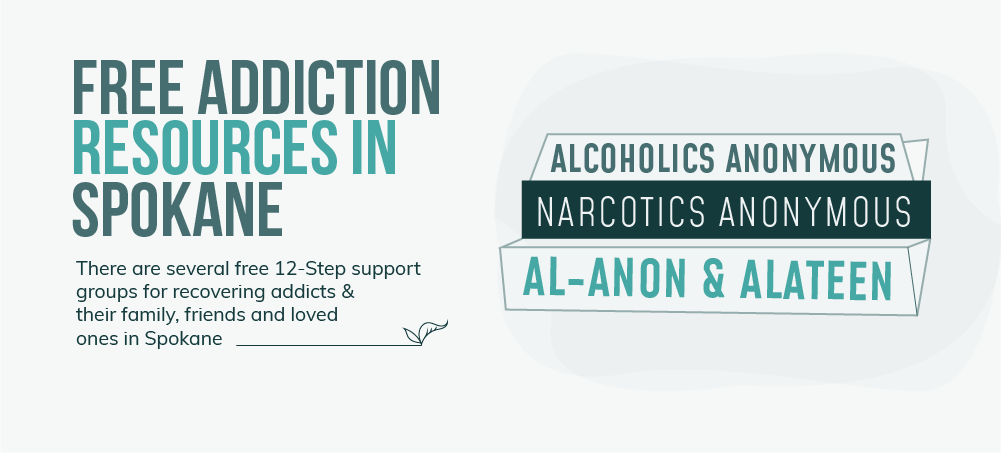
One of the primary pieces of information to base your decision on should be the type of types of therapy offered by an alcohol and drug treatment program. The possibilities for types of addiction therapy include:
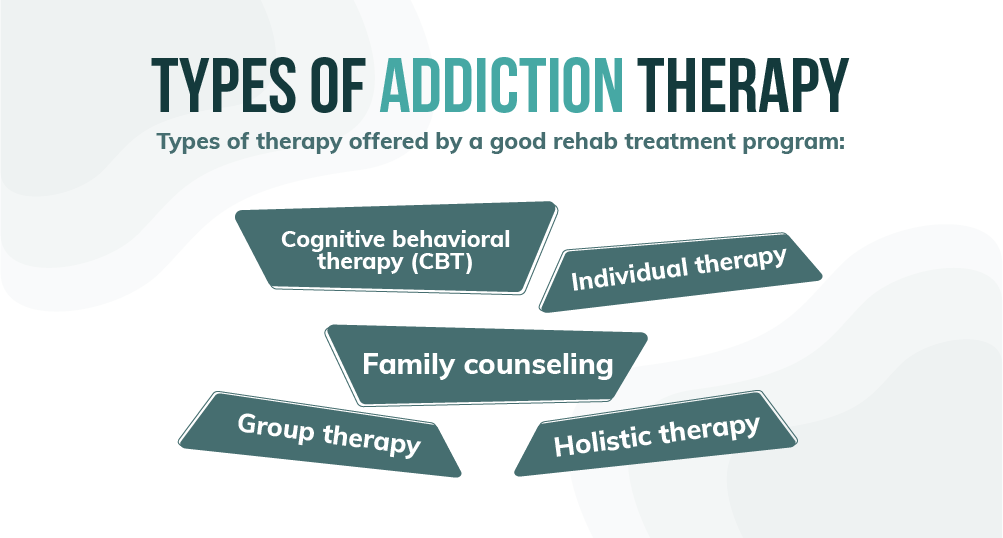
Cognitive behavioral therapy
Individual therapy
Family counseling
Group therapy
Holistic therapy
Before committing to a program, there are many questions to ask the treatment provider to determine if the facility is the best care you can get. These include:
Knowing the answers to these questions can help you determine what you’re getting yourself into - and if it’s worth it (hint: if it’s likely to be successful, other difficulties are probably worth it).
Many recovering addicts still don’t feel secure enough in their sobriety after drug rehab to trust themselves on their own. They want continued accountability and structure as the readjust to independent life.
For such former addicts, there are halfway houses, or sober living homes. These tend to be democratically-run homes in which many recovering addicts or alcoholics live together. No drugs or alcohol are allowed on the property. Often, occupants will attend group therapy together or in conjunction with those from other sober living houses in the area.
There are nearly 50 sober living or addiction-oriented halfway houses in and around Spokane. With so many, the extra accountability and structure is easy to become a part of.
The cost of any given alcohol or drug rehab program will depend on a few things. An inpatient rehab program is going to be the most costly option. The programs come with different options. If you choose a luxury program with full gym, spa, pool, and personal chef, you’ll be paying a lot and your insurance won’t likely cover it.
The cost of any given alcohol or drug rehab program will depend on a few things. An inpatient rehab program is going to be the most costly option. The programs come with different options. If you choose a luxury program with full gym, spa, pool, and personal chef, you’ll be paying a lot and your insurance won’t likely cover it.
A high standard rehab program with accreditation is really what you need. There are no bells and whistles but they offer you high quality drug and alcohol treatment. You have the support you need to succeed in recovery. The average cost for a personalized program is usually about $20,000 US.
An intensive outpatient program costs less because you’re not paying for food and accommodation. While you do get the same quality of treatment, you’ll be going home every evening. With the flexibility of outpatient drug and alcohol treatment, you can continue to work and earn a wage as well.
The good news is that your insurance company may cover some or all of the cost. An insurance company is more likely to cover an outpatient program so keep this in mind when you’re deciding on a rehab program.
At Northpoint Seattle, we are in a network with the following insurance companies:
If you don’t see your insurance company on this list, verify your insurance with us.
Many addicts and alcoholics never get help and recover because they make excuses for themselves. One of the most common of these excuses is that help is simply too expensive. However, this falls flat in the face of the many free drug and alcohol treatment alcoholism and addiction resources in Spokane for alcoholics, drug addicts, and their loved ones. There are local organizations that run free or low-cost drug and alcohol rehab programs. If you don’t have the money for addiction help, there are still options for you in Spokane.

The most popular of the free resources are support groups. Of these, the three most widespread are Alcoholics Anonymous, Narcotics Anonymous, Al Anon, and Alateen - and all are available in Spokane, Washington.
Alcoholics Anonymous, or AA, is a support group for people recovering from alcoholism. The only requirement is that you stop drinking. You don’t have to pay and Spokane AA meetings are widely available. They are probably close to your neighbourhood, making it convenient to get the support you need. The 12 steps of alcoholics anonymous has been a great part of the recovery process for many. If you are truly looking to get past your drinking problem, it’s worth investigating AA meetings in Spokane.
AA also makes use of sponsors, who are those who have been members for longer and are further along in the 12 steps to recovery and serve as mentors for newer members. The goal is that eventually, the newer members become sponsors to others.
The 12 steps to recovery, used in both Alcoholics Anonymous and narcotics Anonymous, are:
There are several AA meetings held in Spokane each day. If you want accountability and structure in recovering from alcoholism, and at no cost to you, check out one of the following meetings:
Manito Morning Meeting
6:30am
Manito Methodist Church
3220 S Grand Blvd
Spokane WA 99203
5th Ave Fellowship Hall
7am
3114 E 5th Ave
Spokane, WA 99202
Eye Opener Group
7am
Our Club
1102 W. 2nd Ave.
Spokane, WA 99201
Early Bird Group
8am
Immanuel Baptist Church
5109 N. Adams St.
Spokane, WA 99205
Nooner Attitude Adjustment Group
12 noon
North Hill Christian Church
4620 N. Post St.
Spokane, WA 99205
Prescription for Living Group
10:00am
Holy Family Hospital
Health Education Center, Room #1
5633 N. Lidgewood St.
Spokane, WA 99208
Moving Forward Group
12noon
Pura Vida Recovery
527 S. Cannon St.
Spokane, WA 99201
Valley Eye Opener
6:15am
Yoke’s Market
9329 E Montgomery Ave
Spokane, WA 99206
Manito Morning Meeting
6:30am
Manito Methodist Church
3220 S Grand Blvd
Spokane WA 99203
5th Ave Wake Up
7am
5th Ave Fellowship Hall
3114 E 5th Ave
Spokane, WA 99202
Eye Opener Group
7am
Our Club
1102 W. 2nd Ave.
Spokane, WA 99201
1st Things 1st
8am
New Community Church
518 W 3rd Ave
Spokane, WA 99201
5th Ave Nooner
12pm
5th Ave Fellowship Hall
3114 E 5th Ave
Spokane, WA 99202
5:15 Group
5:15
Alano Club
1700 W 7th Ave
Spokane, WA 99204
Steppin’ Up
6:30pm
Salvation Army
222 E Indiana Ave
Spokane, WA 99207
Hell or High Water
7:30pm
Trentwood Group
Steelworkers' Union Hall
14015 E Trent Ave
Spokane Valley, WA 99216
SOS
8pm
Hoot Owl
1917 E Pacific Ave
Spokane, WA 99202
Manito Morning Meeting
6:30am
Manito Methodist Church
3220 S Grand Blvd
Spokane, WA 99203
Eye Opener
7am
Our Club
303 W 2nd Ave
Spokane, WA 99201
South Hill Noon Group
12pm
Manito Methodist Church
3220 S Grand Blvd
Spokane, WA 99203
Basic Life Support
5pm
Salem Lutheran Church
1428 W Broadway Ave
Spokane, WA 99201
Tue-Thurs Book Study
5:30pm
Alano Club
1700 W 7th Ave
Spokane, WA 99204
11th Step Study
7pm
Manito Methodist Church
3220 S Grand Blvd
Spokane, WA 99203
Sober on Sprague
8pm
Hoot Owl
1917 E Pacific Ave
Spokane, WA 99202
Manito Morning Meeting
6:30am
Manito Methodist Church
3220 S Grand Blvd
Spokane, WA 99203
Valley Noon Group
12pm
Community of Christ Church
11515 E Broadway Ave
Spokane, WA 99206
Best 3 out of 5
12pm
St Joseph's Cemetery
17825 E Trent Ave
Spokane Valley, WA 99216
Wednesday 11 Step Group
5:15pm
Gardens at Sunset
2628 W 8th Ave
Spokane, WA 99224
Happy Hour Group
5:30pm
Yoke’s Market
13014 E Sprague Ave
Spokane, WA 99216
Pride in Sobriety
8pm
Bethany Presbyterian Church
2607 S Ray St
Spokane, WA 99223
Manito Morning Meeting
6:30am
3220 S Grand Blvd
Spokane WA 99203
Pass It On
Attitude Adjustment Noon Meeting
12pm
North Hill Christian Church
4620 N Post St
Spokane, WA 99205
Bring Your Own Big Book Study
6pm
Immanuel Baptist Church
5109 N Adams St
Spokane, WA 99205
New Soil, New Roots
7pm
Salem Lutheran Church
1428 W Broadway Ave
Spokane, WA 99201
5th Ave Wake Up
7am
5th Ave Fellowship Hall
3114 E 5th Ave
Spokane, WA 99202
Serenity of the Heart
12pm
Immaculate Heart Retreat Center
6910 S Ben Burr Rd
Spokane, WA 99223
Steppin’ Up
6:30pm
Salvation Army
222 E Indiana Ave
Spokane, WA 99207
Friday Night Rovers
7:30pm
St Charles Parish and School
4515 N Alberta St
Spokane, WA 99205
1st Things 1st-By Candlelight
9pm
New Community Church
518 W 3rd Ave
Spokane, WA 99201
Dignitaries Sympathy
8am
Manito Methodist Church
3220 S Grand Blvd
Spokane, WA 99203
Legacies
9am
North Hill Christian Church
4620 N Post St
Spokane, WA 99205
Basic Text Big Book Group
12pm
Opportunity Christian Church
202 N Pines Rd
Spokane Valley, WA 99206
Living on Life’s Terms
6:30pm
Hoot Owl
1917 E Pacific Ave
Spokane, WA 99202
Saturday Night Miracles
8pm
Holy Trinity Lutheran Church
2511 S Pines Rd
Spokane Valley, WA 99206
Narcotics Anonymous, or NA, is a global organization that is available in many communities. It was founded in 1953. Today, NA meetings are available in 139 countries and there are 67,000 weekly meetings. It’s a free service that is self-supported by the people who are involved in it. It is an open space for you to learn and grow past drug addiction. NA meetings in Washington focus on the 12 steps to recovery, focusing to help people abstain from drug use and addiction.
NA functions like AA, but is open to all individuals struggling with any substance addiction. If this sounds like it could be useful, consider attending one of these NA meetings in Spokane:
Our Club
12pm
1102 West 2nd Avenue
Spokane, Washington 99201
Mid City Concerns
7pm
1222 West 2nd Avenue
Spokane, Washington 99201
Our Club
12 pm
1102 West 2nd Avenue
Spokane, Washington 99201
Pura Vida Recovery
8pm
527 S Cannon St
Spokane, Washington 99201
Our Club
12pm
1102 West 2nd Avenue
Spokane, Washington 99201
FOF Church
8pm
706 West Nora Avenue
Spokane, Washington 99205
*No Children under 10
Our Club
12pm
1102 West 2nd Avenue
Spokane, Washington 99201
Our Club
12pm
1102 West 2nd Avenue
Spokane, Washington 99201
Mid City Concern
7:30pm
1222 West 2nd Avenue
Spokane, Washington 99201
Our Club
12:00pm
1102 West 2nd Avenue
Spokane, Washington 99201
Community Presbyterian Church
6:30pm
417 North William Street
Post Falls, Idaho 83854
Room 1
Our Club
12pm
1102 West 2nd Avenue
Spokane, Washington 99201
Alano Club
8pm
1700 West 7th Avenue
Spokane, Washington 99204
Sometimes, those who love an addict are hurt just as much by the addiction as the addict themself. It’s difficult for friends and family to watch someone they love become someone they don’t know. Addicts can neglect or abuse those close to them while simultaneously destroying their own bodies and lives.
If you love an alcoholic, Al Anon meetings in Washington help you to help the person you love. You may not realize that your behaviors are causing problems for the alcoholic. You may be doing things that make it more challenging for them to abstain from alcohol. When you attend Al Anon meetings in Spokane, you’ll get an insight of what the disease of alcohol looks like. You will learn from others based on similar experiences they have faced and what works.
How is Al Anon effective? The problem of alcoholism is complex. Al Anon simplifies the problem with their suggestion of a “One day at a Time” approach. Taking things one-step at a time is what they focus on during Spokane Al Anon meetings. As you attend more Al Anon meetings in Spokane, WA, you will begin to further understand that drinking is a family illness. It affects all members of family and through Al Anon, you will learn to understand your role in the illness of alcoholism.
If these meetings sound like they could benefit you or someone you know, consider one of the following Al Anon meetings in Spokane:
Sunday Morning AFG
10:30am
Alano Club
1700 W 7th Ave
Spokane, WA 99204
Hugs R Us AFG
6:00pm
Daybreak
628 S Cowley St
Spokane, WA 99202
Basement entrance lower level parking
Into Action AFG
7:30pm
Advent Lutheran Church
13009 E Broadway Ave
Spokane Valley, WA 99216
Monday Night Women's AFG
7:00pm
Alano Club
1700 W 7th Ave
Spokane, WA 99204
Tuesday Men's Stag AFG
7:00pm
Alano Club
1700 W 7th Street
Spokane, WA 99204
Tuesday Afternoon AFG
1:30pm
Sinto senior center
1124 W Sinto Ave
Spokane, WA 99201
In the basement
Tuesday Night AFG
7:00pm
Gonzaga University
502 E Boone Ave
Spokane, WA 99258
Parking lot east of driveway
Wednesday Night Adult Children AFG
6:30pm
Central Lutheran Church
512 S Bernard St
Spokane, WA 99204
Use office door off parking lot
Detaching With Love AFG
6:30pm
St. John's Cathedral
127 E 12th Ave
Spokane, WA 99202
Guild Rooms
Miracles In Hillyard AFG
1:30pm
Saint Peter's Lutheran Church Meeting House
4620 N Regal St
Spokane, WA 99207
The meeting house on Wellesley Avenue east of the church.
Serenity Seekers AFG
12:00pm
Unity Church
2900 S Bernard St
Spokane, WA 99203
Main door from parking lot - small chapel
Thursday Nite AFG
7:00pm
Gonzaga University
502 E Boone Ave.
Spokane, WA 99258
College hall. Room 134
Friday Night Lights AFG
6:00pm
St John's Cathedral
127 E 12th Ave
Spokane, WA 99202
Please use east/kitchen entrance
Saturday Night Adult Children AFG
5:00pm
St Luke’s Rehabilitation Institute
711 S Cowley St # 1
Spokane, WA 99202
Room next to cafeteria
It can also be beneficial for younger friends and family members to have a group of their own to talk through the alcoholism of the adults in their lives. To this end, there’s a group made just for older children and teens: alateen.
Alateen functions similarly to Al Anon, but geared towards the worries, concerns, and problems of young people who are close to an alcoholic. Of course, these teens are always welcome at Al Anon meetings too. But Alateen meetings can speak directly to their demographic.
Alateen meetings often focus on breaking the generational cycles that would often lead to the son or daughter of an alcoholic becoming an addict themself. These lessons are of course coupled with explanations of what addiction is and reassurance that a loved one’s addiction is not the teen’s fault.
Unfortunately, the closest Alateen meeting to Spokane is over 30 miles away, in Coeur d’Alene, Idaho. However, teens ages 13 to 18 can sign up for the online Alateen chat meetings on the Alateen website.

If you’re searching for drug and alcohol treatment resources or services, here at Northpoint Seattle at Northpoint, we can help. We know how frustrating it is when an addiction to drugs or alcohol seems to rule your life. We know the fear behind asking for help. We want you to know that we’re here for you, regardless of what you may need.
With our support, we’re confident that you can begin your journey to recovery. The best time for you to take action is right now.
Perhaps you still aren’t sure if you’re an addict or an alcoholic. You may not know if you simply abuse a substance or if you’re truly an addict. But this is something that’s important to find out. If you are truly addicted, it’s important that you get help fast before things get worse.
If you aren’t sure if you’re addicted, consider taking one of our addiction quizzes to determine if you’re a drug addict or an alcoholic, or if you need an intensive outpatient program.
Northpoint Seattle is an outpatient addiction recovery facility near Spokane that focuses on four guiding principles: autonomy, integrity, hope, and thrive. We strive to help you recover in a way that will last. Recovery is an ongoing journey, and we want to start you off on the right foot.
But don’t take it from us - hear what former patients have to say about their experience at Northpoint Seattle:
“Today I celebrate 11 months of sobriety and I give all the credit to the staff of Northpoint Seattle. I struggled with addiction issues with both alcohol and cocaine for the better part of 25 years. I tried many times to quit on my own and went through programs offered through the Veterans Administration however nothing kept be clean and sober until I made the call to NPR and through their personalized in-patient program and the professional care that I received both while an in-patient and after care I am proud to say that I am a happier, healthier person. If you truly want a better life for you and your loved ones you owe it to yourself to walk through the doors of NPR and into a brand new you.”
~ Kevin D. Fletcher via Facebook
Do you still have questions about alcoholism or addiction treatment? Do you need more information on substance abuse resources in or near Spokane, Washington? Please contact us right away.

Our admissions coordinators are here to help you get started with treatment the right way. They'll verify your health insurance, help set up travel arrangements, and make sure your transition into treatment is smooth and hassle-free.
[DirectNumber] Contact Us